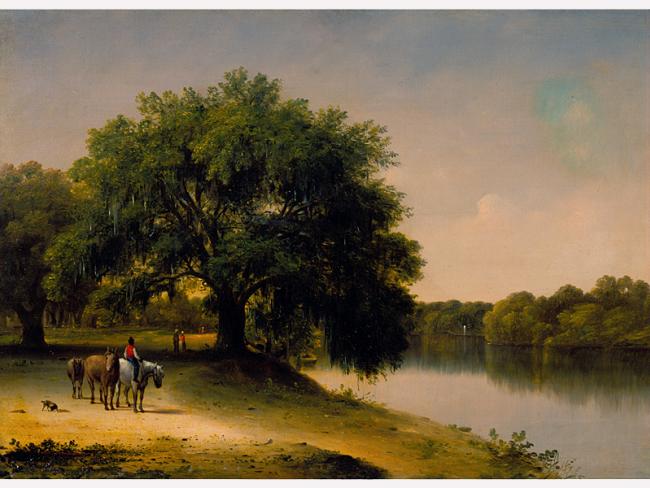This essay served as the concluding chapter to Page’s biography of Robert E. Lee, published in 1908.
I stood not a great while ago on the most impressive spot, perhaps,
in all Europe: beneath the majestic dome of the Invalides where stands
the tomb of Napoleon. It was a summer evening, and we descended the
steps and stood at the door of the crypt where repose the ashes of him
who was doubtless the greatest soldier of all time; who by his genius
took France from the throes of a revolution and lifted her while he
lived, to the head of the nations. Just then the hour came for closing,
and suddenly in the marble rotunda above us began the roll of a drum,
which swelled and throbbed until the whole earth seemed reverberating to
its martial tone. It was the long roll which had sounded before so many
hard-fought fields, and as it throbbed and throbbed in the falling dusk
of that summer evening, there seemed to troop before the mental vision
the long lines that had fought and fallen on so many a glorious field:
the soldiers of Lodi and of Austerlitz, of Friedland and Wagram and
Borodino.
So, as I have immersed myself in the subject of this great captain
and noble gentleman, there has appeared to come before me from a misty
past that other army, inspired by higher motives—by the highest motive:
love of Liberty, on whose imperishable deeds is founded the fame of an
even greater, because a nobler soldier; that army of the South, composed
not only of the best that the South had, but wellnigh of all she had.
Gentle and simple, old and young, rich and poor, secessionist and
anti-secessionist, with every difference laid aside, animated by one
common spirit: love of country, they flocked to the defence of the
South. Through four years they withstood to the utmost the fiercest
assaults of fortune, and submitted only with their annihilation.
“The benediction of the o’ercovering Heavens
Fall on their heads like dew, for they were worthy
To inlay Heaven with stars.”
Through more than twice four years their survivors and their children
endured what was bitterer than the sharpest agony of the battletime,
and strong in the consciousness of their rectitude, came out torn and
bleeding, but
victorious. Such fortitude, such
courage and sublime constancy cannot be in vain. The blood of the
martyrs is the seed of the church; so the blood of patriots is the seed
of liberty. The history of their valor and their fortitude in defence of
Constitutional Liberty is the heritage of the South, a heritage in
which the North will one day be proud to claim a share, as she will be
the sharer in their work.
Some day, doubtless, there will stand in the Nation’s capital a great
monument to Lee, erected not only by the Southern people, whose glory
it is that he was the fruit of their civilization and the leader of
their armies; but by the American people, whose pride it will be that he
was their fellow-citizen. Meantime he has a nobler monument than can be
built of marble or of brass. His monument is the adoration of the
South; his shrine is in every Southern heart.
Thomas Nelson Page (1853-1922) was considered to be one of the
greatest writers during his age. He was descended from two of the most
prominent families in Virginia. He served as Ambassador to Italy during
World War I.
More from Thomas Nelson Page




